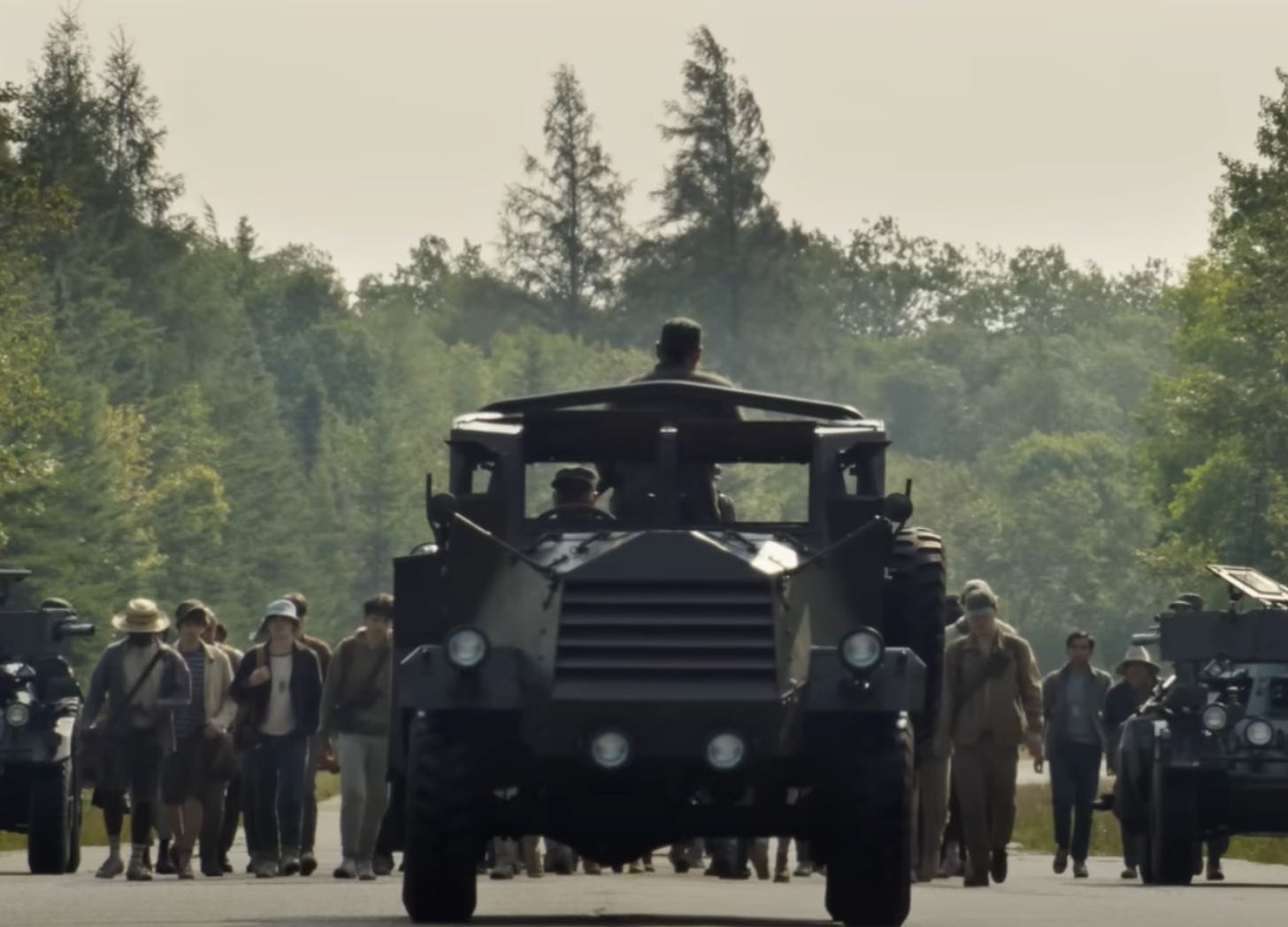The Raw Walk
Francis Lawrence's I-ain’t-afraid-of-this-shit honesty becomes tiring.
Grade: C+
How does it compare to the novel? Francis Lawrence (director of I Am Legend and The Hunger Games 2-4) has done okay adapting Stephen King’s 1979 thriller. Lawrence has got all the story’s arms, legs and eyes and he’s made it walk and talk fine, but it’s missing a lot between the ears.
Lawrence and the film’s writer JT Mollner have kept King’s plot. In a dystopic future United States, young men volunteer for the Long Walk. The contest’s rules are simple and its stakes immense. Contestants walk along a road across the US East Coast at a minimum of 4 miles per hour. If they drop below the minimum rate, they’re shot (‘given their ticket’). They keep walking until there’s only one man left walking. The winner at the end, who hasn’t collapsed from exhaustion or cracked up, is given all the money they could ever want and one wish that the government must grant them.
What Lawrence and Mollner haven’t kept is the novel’s narrative frame that’s key to why King’s novel is so thrilling. They can’t. They’re working in a different medium. King wrote the novel from the perspective of Long Walker Ray Garraty, who’s played by Cooper Hoffman in the film, and that narrative POV choice makes you this silent promise that Garraty’s going to be the one who wins. If he doesn’t, the story will black out when Garraty gets his ticket and you’ll be left not knowing how The Long Walk ends. It’s possible but would make the novel so unsatisfying that you think King won’t do it, and he doesn’t.
You keep reading King’s novel to see how Garraty will get through this nightmare from which even sleep hardly offers any respite. You don’t feel that watching the film unless you’ve read the book. The film isn’t told through any single character’s POV but through the omniscient POV of Lawrence’s camera. Lawrence could only have reproduced what King did with his POV by putting the camera inside Garraty’s skull, like Delmer Daves did for Bogart in Dark Passage, but in fairness to Lawrence that’s so unlike what we expect to see when we look into a film screen that he may not have been able to get away with it.
Lawrence is also not that kind of filmmaker. He’s not into clever cinematic tricks like Christopher Nolan, Luca Guadagnino or David Lynch but a more straightforward and raw director. In The Long Walk, you see the Walkers crap and piss and get crushed and blasted to bloody pieces. Lawrence doesn’t shy away from just how, to quote Hoffman’s Garraty, “fucked up” the whole Long Walk is, but his I-ain’t-afraid-of-this-shit honesty becomes tiring. He’s like a teenage boy who upon discovering pornography, masturbates before blow ups of naked ladies until numbness has stolen all sensation from between his legs. The first time you see a young man’s face blown apart by a stormtrooper’s carbine rifle shocks and horrifies you, but if you keep seeing it again and again boredom and disgust curdle together inside your stomach. You don’t feel that live-wire jolt like you would if Lawrence knew how necessary restraint is with horror. Remember what Hitchcock said: there’s no terror in the bang only in waiting for it. In The Long Walk, Lawrence makes the same mistake with violence he did with sex in Red Sparrow. That film, his first after finishing The Hunger Games, was a porno film disguised as a spy thriller. He dropped sex scene after sex scene on you after another until sex became as dirty, commonplace and dull as a popping outside for a fag.
Similarly, in The Long Walk, Francis Lawrence is just too raw for his own good.


